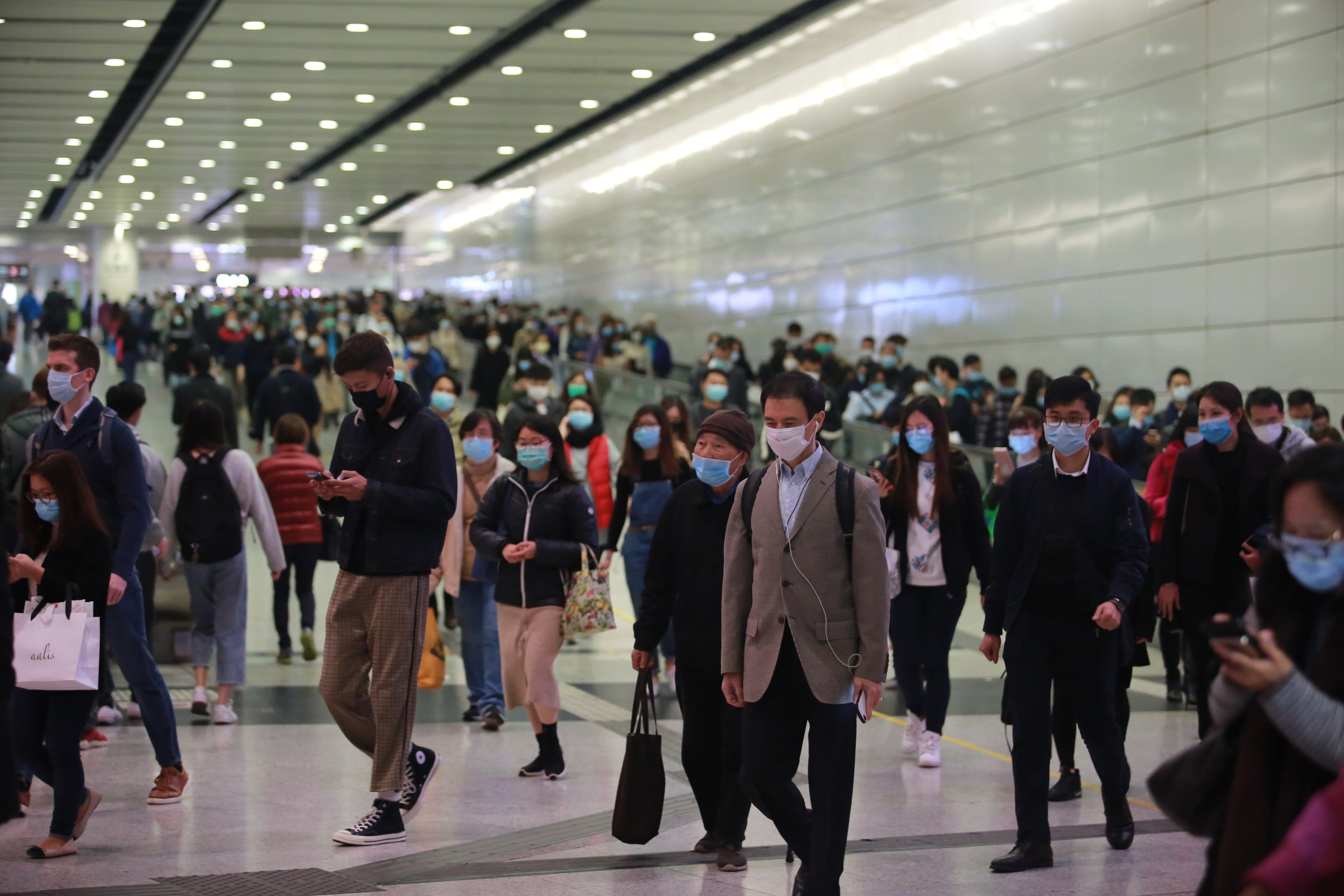What Students Should Know About the Coronavirus
If you have been following any recent news cycles, you will know that a new Coronavirus started making headlines at the end of 2019. Now, reports about the scope and reach of the virus are a daily part of the news cycle, and for students -- especially those studying abroad -- it is important to stay informed. Here's what students need to know about the Coronavirus, the world's response, and what to expect in the coming weeks and months.
- International News

1. What you need to know
According to the World Health Organization (WHO), “Coronaviruses (CoV) are a large family of viruses that cause illness ranging from the common cold to more severe diseases such as Middle East Respiratory Syndrome (MERS-CoV) and Severe Acute Respiratory Syndrome (SARS-CoV). A novel coronavirus (nCoV) is a new strain that has not been previously identified in humans.”
The coronavirus -- recently labeled as COVID-19 by WHO -- was first identified in the city of Wuhan in the Hubei province of China in December. Recent figures estimate over 45,000 people have been infected with COVID-19 and this number is expected to grow. Researchers suspect the virus originated in an animal population - possibly bats - and was transferred to humans via a secondary source. Symptoms include respiratory issues, fever, cough, shortness of breath and breathing difficulties. In more severe cases, infection can cause pneumonia, severe acute respiratory syndrome, kidney failure and even be fatal.
How can you prevent the spread of coronavirus and avoid infection? WHO recommends washing your hands regularly; covering your mouth and nose when coughing and sneezing; and cooking meat and eggs thoroughly. Governments around the world are making every effort to contain and reduce the spread of the virus and researchers, medical professionals, and government officials are working to develop treatments and limit public exposure.
While the risk of infection, especially for those outside of affected areas is currently low, students, particularly international students, should continue to monitor the situation and follow instructions from campus and local authorities.
2. If you’re an international student, consider your location
As stated above, if you study in or are traveling to a location that is not currently affected by COVID-19, monitor the situation and follow instructions. Still, students studying abroad will want to pay extra attention to where they are in relation to the epicenter of the virus. Students studying in China or in nearby countries should take extra precautions. The good news is that the World Health Organization’s Director General, Tedros Adhanom Ghebreyesus, says, “The steps China took to fight the virus at its epicentre were a good way of stopping its spread.” It is advised to consult your university’s study abroad department, get information on how to proceed from the head of the department or your advisor, and if necessary, contact your local embassy for advice.
3. Studies could be canceled, suspended, or moved to an online platform
In response to the outbreak of COVID-19 some colleges and universities are canceling or suspending exchange programs and study abroad programs in China, or in countries in close proximity. Some programs and schools are also limiting or suspending admissions until further notice. And in affected areas, some colleges and universities are delaying the start of classes or changing the mode of instruction. If you are part of an exchange or study abroad program, monitor your email and texts, and make sure you are signed up to receive the alerts from your college or university.
Meanwhile, if you are planning to start your studies in an affected area, be aware your travel plans may change with little or no notice. Travel to and from China is becoming more restricted as governments around the world work to contain the spread of the virus. Flights may be canceled, borders may be more controlled, and airlines and governments may implement new travel regulations.
While some classes and programs may be canceled entirely, technology is helping students around the world continue their studies during the outbreak. As well as allowing classes to proceed while universities are shut, online learning options help to limit students’ exposure in affected areas. Your college or university might temporarily shift your classes to an online platform, which will require your professors and you to log in remotely and conduct classes virtually.
For example, Mu Xuequan reports for Xinhua.net, “China's Ministry of Education (MOE) has announced that the doctoral exams and the second-round postgraduates exams and interviews held by universities and institutions will be postponed due to the novel coronavirus outbreak. No mass gatherings or large-scale exams should be held during the epidemic outbreak, said a guideline issued by the MOE, adding that local authorities, universities and institutions should make timely adjustments to their admission work plan in accordance with local prevention and control situations.”
If you are a student enrolled in a program that might be canceled or delayed by the coronavirus, you might want to request refunds of your fees or credit back on your account for any part of your education missed or negatively impacted by the virus.
The impact of COVID-19 on higher education has highlighted one exciting thing - how important China and Chinese students are to international education. "[M]any colleges and universities are intertwined with China, whether it be through robust incoming exchange programs and outbound students, joint degree programs, collaborative research projects, short-term travel, language learning -- there are just a lot of different ways in this day and age in which we are connected to China," says Julie A. Friend, director of the Office of Global Safety and Security at Northwestern University.
Some students from Africa are currently in Wuhan, China, report Jason Burke and Charles Pensulo for The Guardian. They write, “There are more than 80,000 African students in China, often attracted by generous government scholarships. About 5,000 are thought to be in Wuhan, where there are scores of further education establishments offering qualifications that are prized in Africa.”
The outbreak is also demonstrating to international education providers the need to have robust student support systems in place. Julie A. Friend adds, "When something like this happens, we have to think very broadly about the impact to current students studying abroad, future students who are looking to study abroad and individuals from China who are in our U.S.-based communities. How are they being impacted by this? Do they have families who are impacted? Do they need support?”
4. Stay informed with technology
Many countries are taking precautions and responding to the potential for the virus to reach them. Depending on where you are studying abroad, it is advised to pay attention to the country’s information, sign up for news alerts, and download relevant apps.
In South Korea, a small group of students at Korea University have developed a digital user-friendly map interface which shows users locations and venues affected by and in the vicinity of the virus. “By shifting mode, users can also see the information of hospitals and health centers that potential patients can visit. A real-time board that curates a variety of information related to the new coronavirus is also trending. The site uses the domain Wuhanvirus.kr, referring to the central Chinese city where the virus first emerged,” reports Lee Minji for Yonhap News Agency. In today’s digital age, no matter what country you find yourself in, as a tech savvy student, you will be able to find the appropriate information to protect yourself from contracting the virus.
5. If you need to be quarantined or evacuated, here’s what you need to know
South China Morning Post reports, “All eight publicly funded universities in Hong Kong have told students returning from holiday in Hubei province or any parts of mainland China they must self-quarantine for two weeks, amid the coronavirus outbreak. Some have also designated dormitories or hotel rooms for quarantine purposes, in case mainland students do not have anywhere else to stay in the city.”
If you are studying abroad in or returning from an affected area, you may be required to spend some time in quarantine regardless of whether you were exposed to or are showing symptoms of COVID-19. You can prepare by packing and planning accordingly and by contacting your government and university officials before you travel. US officials have imposed new restrictions on travelers from China, many of whom have returned from the nation recently and self-quarantined in their homes to ensure they are not carrying or spreading the disease.
Some countries are also working to evacuate their students from affected areas. If you are studying in a region that is experiencing an outbreak of COVID-19, contact your local embassy and stay up-to-date on potential evacuation plans. Many countries are planning or have already evacuated their citizens from the Wuhan area and from other parts of China. The US just released its first group of evacuated citizens after a 14-day mandatory quarantine. Be aware -- if you have to be evacuated, you may be required to stay in quarantine for the standard two week period.
As a student studying abroad, or enrolled in classes at a local college or university, make sure you do not interrupt your studies and that you continue to attend classes, unless it becomes unsafe to do so. Stay informed about how the coronavirus might affect you by signing up for news alerts, contacting your public health officials, and paying attention to news cycles -- the more you know, the better off you will be.
Find your perfect program
Use our search to find and compare programs from universities all over the world!
Global Health
S.M. Audsley
Author
S. M. Audsley is a freelance writer and poet who lives and works in Vermont, a small but mighty state in the United States. She is an avid outdoor enthusiast and a lover of potlucks.
Find a program in these categories
Read related articles

Five Countries to Choose for Nursing Degrees

Why Medical Students Should Learn Languages
